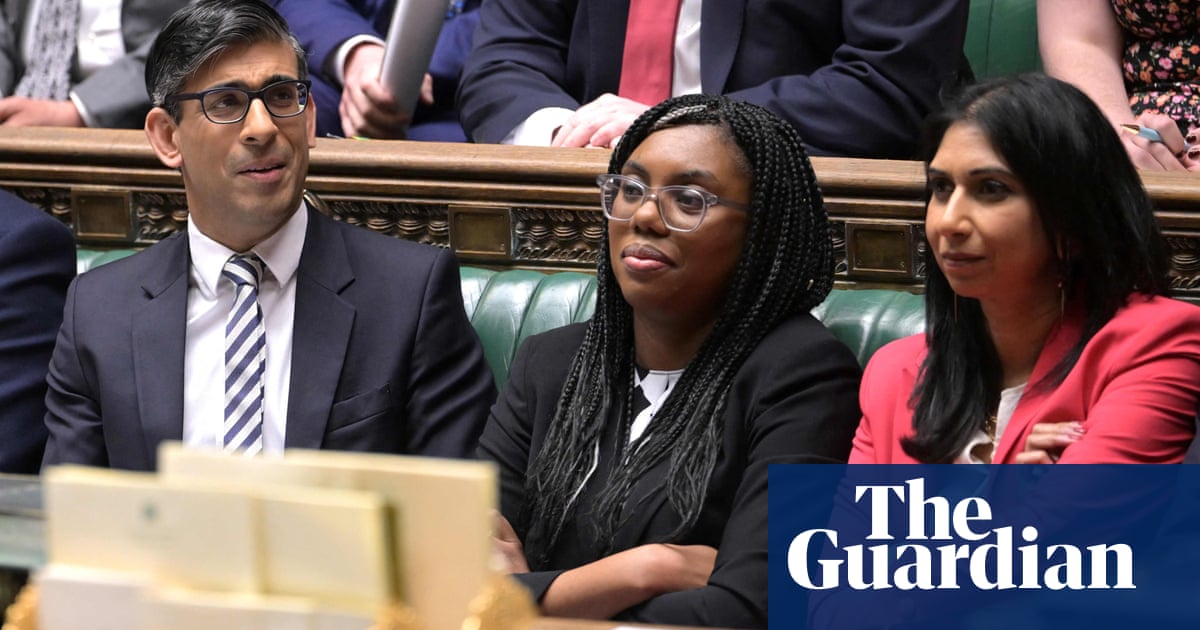
Former Foreign Office minister Rory Stewart has said he has found it “painful” to watch the Conservative party “lurch to the right”, arguing that electoral reform is the only way to plug a “gaping hole in the middle of British politics”.
Speaking to an audience at the Edinburgh festival fringe, Stewart said a shift away from the UK’s first-past-the-post system was needed so “new parties, new ideas, new opportunities” could break through.
He said this would be an important corrective to a “wooden, stiff and boring” Labour party and a Conservative party in “la-la-land”.
Stewart was a candidate to be leader of the Tory party in 2019 in the contest ultimately won by Boris Johnson, but was expelled from the party by Johnson later that year.
“There’s definitely huge space for a new party. In Scotland it should be a liberal, unionist party, in other words, a party that believes in the United Kingdom that is not a rightwing populist party. In England it should be a really strong, dynamic party of the centre,” he said.
He cited the example of the Teal independents in Australia as a possible model. These are independent candidates who are united by their combination of blue, the traditional colour of the centre-right Liberal party, with green views on climate.
Stewart added that he would “love to come again” to frontline politics, which he left three years ago, but this would “probably depend” on electoral reforms.
Asked about whether he would vote for Liz Truss or Rishi Sunak, he reluctantly picked Sunak, though his expulsion from the party means he is unable to vote.
He shared with the audience his feelings of disenchantment with politics, which he described as “an incredibly fake profession” in which it had been “impossible to get real change” both for his constituents as an MP and at a policy level as a minister – due to the “incredibly complicated” UK political system. He added it had been “nonsense I did Africa policy when I knew nothing about it”.
Reflecting on his “difficult” time working under Johnson, then the foreign secretary, he said he had concluded he was a “genuinely terrible human being”, who lost the “trust and respect” of his junior ministers.
He recalled regularly getting “very angry” with his failure to grasp details and decisions he would make, such as congratulating the Kenyan government despite accusations of electoral corruption, telling ambassadors to write “optimistic” dispatches from their country, and arriving at morning meetings sounding “like he’d read the Economist in the bath the night before”.
Any attempted confrontations with Johnson would result in being fobbed off with charm. “I would find myself outside three minutes later like an abused partner,” he recalled.
Stewart said that, as he approaches his 50th birthday, he wants to focus the rest of his career on “lead[ing] a global movement” to improve the impact of international development work, citing its failure to lower the poverty level in sub-Saharan Africa since 1980 as a reason.
He would like to see charities focus on cash grants given directly to those in need rather than spending money on costly on-the-ground staff from western countries making decisions for local people.
As a staunch unionist, he said he would support the campaign for Scotland to remain part of the UK as “nothing gets better through drawing borders”, as Brexit has exemplified.
He would prefer not to see a referendum as, rather than helping to put issues to bed, he believes they are “polarising and divisive”.
But if one did take place, he recommended Gordon Brown as a “fantastic voice” to lead the pro-union campaign rather than him.












